Luxembourg / Groussherzogtum Lëtzebuerg – Let’s explore here
What’s it like in Luxembourg?
The Grand Duchy of Luxembourg is a small landlocked country in western Europe, bordered by Belgium, France and Germany. It is the last remaining grand duchy in the world. It has a population of around 670,000 people (2024), about one in five of whom live in the capital, Luxembourg City, making it one of the least populated countries in Europe.
To the north lies the hilly and mountainous Ardennes area. In the east lies Little Switzerland, with its craggy terrain, thick forests, caves and myriad small streams. The highest point is Kneiff hill, at 1,840 ft (560 m) above sea level.
In our experience we used to think that you don’t tend to notice that you’re in Luxembourg until you’ve left! However this could not be more WRONG! It’s our go-to place when entering or leaving mainland Europe. on our way from or to the UK.

A bit about the history of Luxembourg
Early History and Formation
Luxembourg’s history dates back to the Roman era, when the region was part of the Roman Empire. After the fall of Rome, the area was controlled by various Germanic tribes. In 963, Count Siegfried acquired a fortress at Luxembourg, marking the beginning of Luxembourg as a separate entity. Over time, the county of Luxembourg grew in importance and became part of the Holy Roman Empire.
Medieval Period and Dynastic Control
Throughout the medieval period, Luxembourg was ruled by various noble families, and it became a duchy in 1354 when it was elevated by Emperor Charles IV. The Duchy of Luxembourg frequently changed hands through marriage alliances and inheritances, passing between the French, Spanish and Austrian Habsburgs, as well as the Bourbons. It was part of larger European power struggles during this time, often caught between France, Germany and the Netherlands.
French Revolution and Napoleonic Era
In the late 18th century, during the French Revolution, Luxembourg was annexed by France in 1795. The country remained under French control until the fall of Napoleon in 1815. After the Napoleonic Wars, Luxembourg’s status was redefined at the Congress of Vienna, where it was made a Grand Duchy and placed under the control of the Netherlands, though it retained a degree of independence.
Independence and the 19th Century
Luxembourg gained full independence in 1867 following the Treaty of London, which confirmed its neutrality and independence, though it remained in personal union with the Netherlands until 1890. The Grand Duchy also underwent significant modernisation during the 19th century, particularly in its economy, as the steel industry began to grow in importance.
World Wars and Occupation
During both World War I and World War II, Luxembourg was occupied by German forces. In World War I, Luxembourg was invaded but remained neutral. During World War II, the country was once again occupied by Nazi Germany, and it was annexed into the German Reich. Luxembourg was liberated in 1944 by Allied forces.
Post-War Period and Modern Development
After World War II, Luxembourg became one of the founding members of key international organizations, including the European Coal and Steel Community (which later became the European Union) and NATO. In the second half of the 20th century, Luxembourg developed into a wealthy and prosperous financial center, taking advantage of its location and political stability.
Contemporary Luxembourg
Today, Luxembourg is a constitutional monarchy with a highly developed economy, particularly in banking and finance. It is one of the richest countries in the world in terms of GDP per capita. The country continues to play a significant role in European politics, maintaining a commitment to international cooperation and serving as a hub for European institutions.
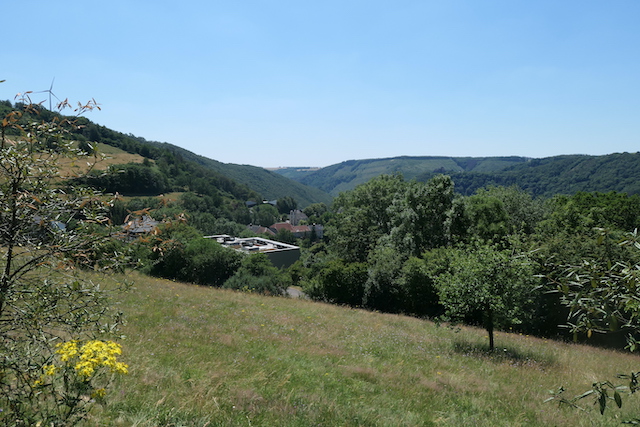

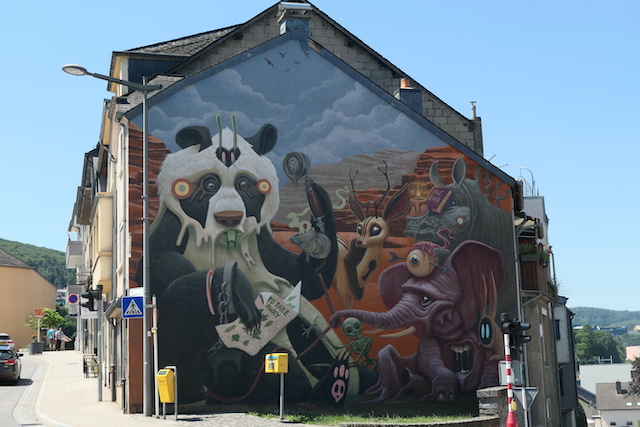
Luxembourg road trip
We created several blogs for our visits to Luxembourg. You may find them helpful, and you may pick up some tips, or more likely mistakes not to make that we’ve made 😉 Our Luxembourg road trip was part of a much larger European road trip.
On our road trip through Luxembourg we travelled from Wallonia, Belgium avoiding all toll roads and motorways, across the mountain passes into Luxembourg. We stayed in a great campsite called Camping Ettelbruck in Ettelbruck, which we highly recommend. In fact its our go-to place to stay whenever we’re in the area. Everyone is so friendly there, the pitches are level, and its really relaxing. Plus there’s a great supermarket just down the hill.
Our road trip took us in a loop around some excellent castles, lakes, forest and hills, from Clervaux to Wiltz to Bourscheid to Waldbillig to Echternach to Vianden, and back to Clervaux.
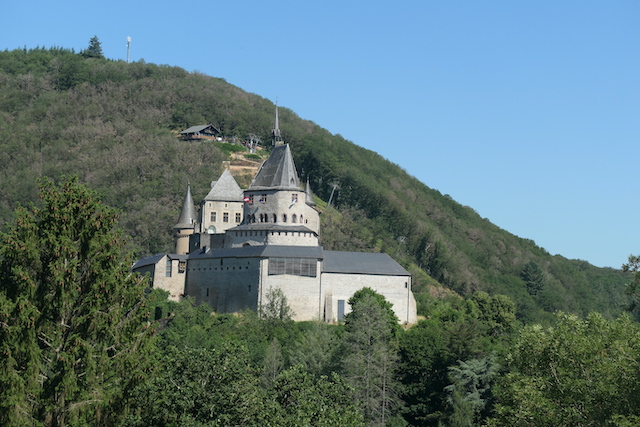

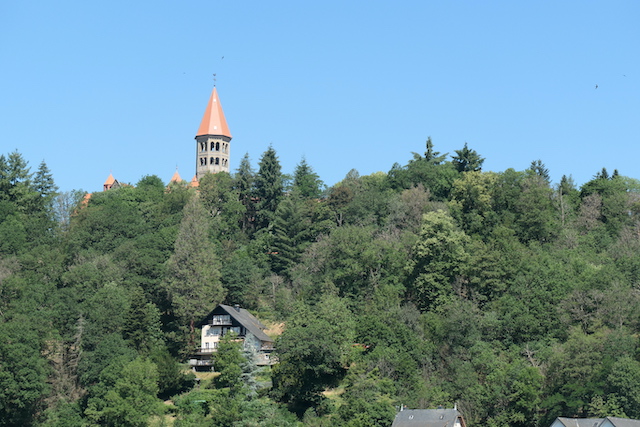
Map of our road trip through Luxembourg
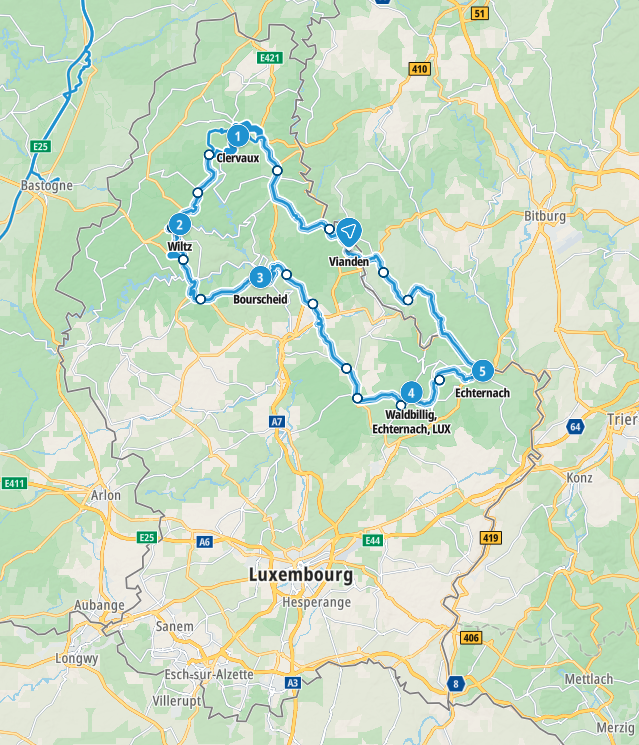
This is a map of our road trip through Luxembourg.
Our route took us in a loop from Clervaux – Wiltz – Bourscheid – Waldbillig – Echternach – Vianden – Clervaux.
Our road trip really improved our knowledge of this intriguing and beautiful country, and enabled us to meet some interesting people. Next stop for us was in the east of the Netherlands.
Previous road trips in Luxembourg
Some years ago, before we got to know Luxembourg and how fantastic it is, we thought that it was dull and weird! For a while, every time we went there, something untoward happened. Because of this it had been a place that we tended to drive through without stopping! In our Luxembourg blogs, we’ve provided some examples of what happened to us in the past. Who knows why these things happened, but it’s really shaped how we saw the country at that time!
Accordingly we decided to undertake a road trip through Luxembourg that took us around the low mountains; yes mountains, who knew?; and castles, and some of the best sights.
Wow, was this a great move! It literally changed our view to the polar opposite. Is Luxembourg Europe’s best kept secret? It is absolutely FANTASTIC!
What’s it like to drive in Luxembourg?
As with almost everywhere on the continent of Europe, they drive on the right hand side of the road in Luxembourg.
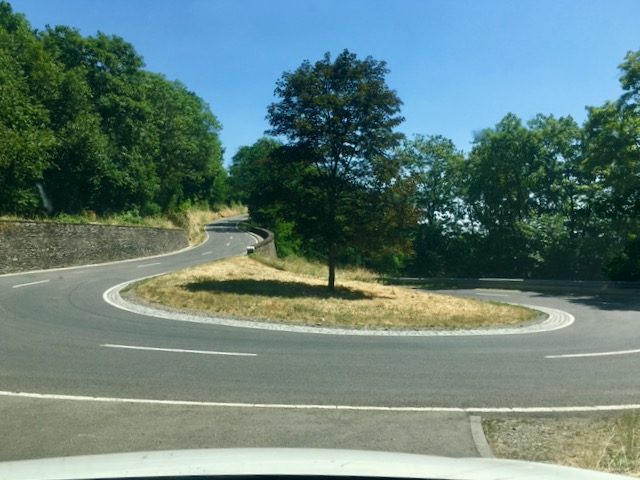
Luxembourg has a reputation for being a bit like a little version of Switzerland, and that’s bang on the money. There are numerous mountain passes, incredible roads that take you over and through some beautiful places.
Because of this, there are many petrol heads in the country. And, because its such a wealthy place, there are loads of top end sports cars, as well as classic cars, as well as road bikes touring across the country – some at speed. That said, they do seem to be mostly polite and not too pushy.
Road signage on the motorways is excellent, so you should never get lost!
Do you require an international driving permit in Luxembourg?
We’ve created a dedicated page to driving abroad, which answers this question, and more, which you might find helpful.
Can you use your UK driving license when driving through Luxembourg?
We’ve created a dedicated page to driving abroad, which answers this question, and more, which you might find helpful.
Do I need a carnet de passages to drive in Luxembourg?
We’ve created a dedicated page to driving abroad, which answers this question, and more, which you might find helpful.
What are the speed limits in Luxembourg?
The speed limits for cars in Luxembourg are:
- 30 mph (50 km/h) for urban driving
- 55 mph (90 km/h) outside of built up areas
- 55 mph (90 km/h) on dual carriageways
- 80 mph (130 km/h) on motorways
We’ve also created a dedicated page to driving abroad, which you might find helpful 🙂
What currency do they use in Luxembourg?
In Luxembourg they use the Euro. The use of credit / debit cards is now widespread. Travellers cheques are accepted. There are lots of ATMs.
You should make yourself aware of the amount that your bank charges you for using credit and debit cards abroad. Often credit cards are cheaper for purchasing items directly, and for withdrawing cash from ATMs.
What language do they speak in Luxembourg?
They speak Luxembourgish, French, and German in Luxembourg. Additionally due to the cosmopolitan nature of the country, many also speak Dutch, Portuguese, Italian, and English.
What time zone is Luxembourg in?
Remember, when you’re planning your next trip to take a look at what time zone it’s in.
Do I need a visa to visit Luxembourg?
We’ve created a dedicated, more comprehensive page on visas, which you should find helpful. Check it out!
Is wild camping legal in Luxembourg?
No, wild camping is illegal in Luxembourg.
What plug / socket type do they use in Luxembourg?

In Luxembourg they use plug / socket type F.
Health issues in Luxembourg
Is it safe to drink water in Luxembourg?
Yes, it is safe to drink tap water in Luxembourg. Bottled water is also readily available across the country.
What vaccinations are required for Luxembourg?
This NHS website is kept up to date with all relevant information on vaccinations in Luxembourg.
Phones in Luxembourg
What is the country calling code for Luxembourg?
The country calling code for Lithuania is +352
What are the emergency phone numbers in Luxembourg?
- The emergency number for police in Luxembourg is: 112
- In Luxembourg, the emergency number for ambulance is: 112
- The emergency number for fire in Luxembourg is: 112
If you’ve got some useful info that you’d like to share, let us know!
And don’t forget to check out all the other pictures!
